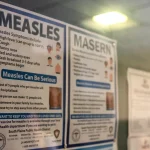QUETTA: Despite an annual security expenditure of Rs80 billion “due to the lack of genuine representation” in the provincial assembly, political and religious leaders, tribal elders, and members of civil society have voiced serious concerns about the worsening law and order situation in Balochistan, emphasizing that peace is still elusive.
Participants in a meeting hosted by Jamaat-i-Islami (JI) Balochistan and presided over by Maulana Hidayatur Rehman, the party’s provincial emir, criticized the federal government and “powerful quarters” for denying the province the authority over its resources that the 18th constitutional amendment grants. Additionally, they recommended that security personnel be kept in their barracks.
A joint statement released on Wednesday emphasized the province’s deteriorating unemployment situation, especially in Makran’s border regions, where more than three million people are unemployed as a result of the closure of Iran’s borders.
The meeting emphasized how Balochistan has been viewed as a “colony” and how agreements with its citizens have been routinely broken.
The federal government and establishment, according to the participants, are maintaining a “master-slave” mentality that has fueled teenage discontent and revolt in the province.
In order to address constitutional difficulties, the tribal elders urged substantive discussions between federal officials, tribal leaders, and Balochistan’s elected representatives.
They called for the return of governance to elected officials and the cessation of political meddling in provincial matters. In addition to canceling unlawful contracts, the federal government was urged to stop “forced control” over local resources, including Reko Diq and coal and gas deposits. To account for the money taken from the province, a commission was suggested.
The statement denounced the security forces’ meddling in tribal issues, which has led to a great deal of unhappiness among the populace. It demanded that the Levies force and local police be given responsibility for upholding peace and order and that the military stay out of municipal affairs. The participants also criticized the government’s lack of faith in the judiciary and brought up the problem of enforced disappearances, especially involving young people.
The participants warned that if borders are not reopened, tribes may take unilateral action, rejecting the closure of borders and the division of tribes residing on either side. Additionally, they called for the revocation of the unlawful land distributions to “non-locals.” Concerns were voiced regarding the “trawler mafia’s” operations and control of Balochistan’s coastline.
The meeting promoted using the term “Balochistani” to refer to all citizens, especially those in Quetta, and emphasized the togetherness of all ethnic groups in Balochistan.
To carry out the agreed-upon actions and supervise more tribal discussions throughout the province, a committee of representatives from each tribe was established. Following negotiations with the federal government and other stakeholders, a representative delegation will convene a grand tribal conference in Quetta.








